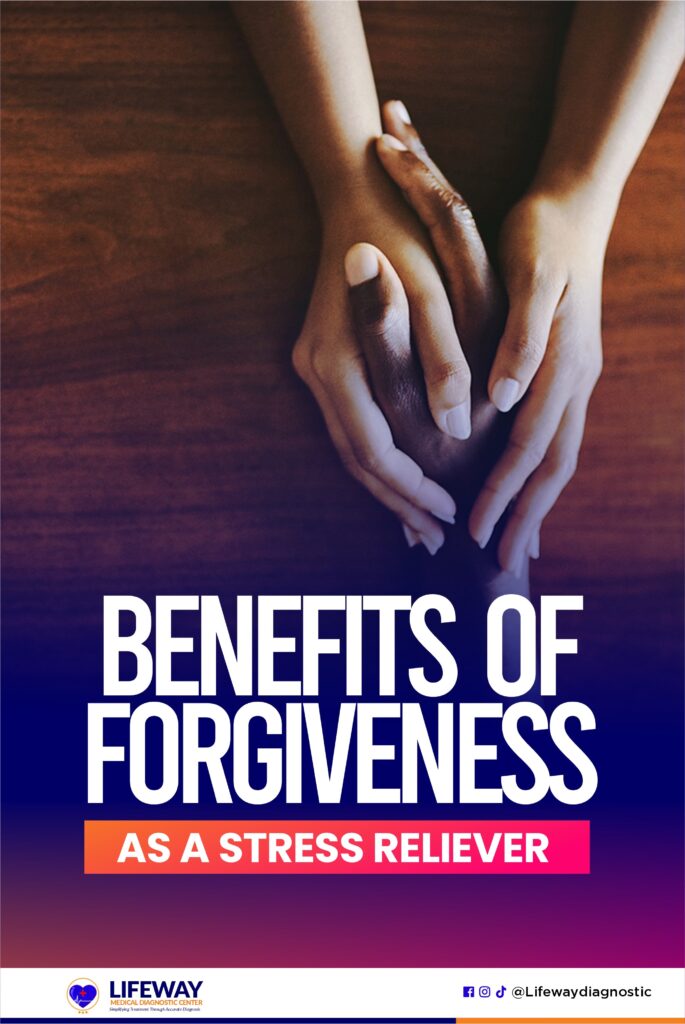Our mental and physical well-being can be harmed by holding onto grudges and harboring resentment, leading to stress and emotional turmoil. Therefore, the profound benefits of forgiveness as a stress reliever are evident.

In our journey through life, we often encounter situations where we feel wronged, hurt, or betrayed by others. The emotions that arise from these experiences can lead to stress, affecting our overall well-being.
By choosing forgiveness, we release our emotional burden, reduce stress and anxiety, and cultivate a positive emotional state. It enhances our relationships, improves our physical health, and fosters personal growth.
Here, we will explore the benefits of forgiveness as a means to alleviate stress and find emotional freedom.
What is Forgiveness?
According to the American Psychological Association, forgiveness requires willingly setting aside feelings of resentment towards someone who has wronged, been unfair, hurtful, or caused harm to you in some way.
Also, it involves releasing negative emotions and choosing to move forward with empathy, compassion, and understanding.
Forgiveness does not mean condoning or forgetting harmful actions, but rather, it is a personal decision to free oneself from the emotional burden and find peace within.
It allows for healing, personal growth, and the restoration of relationships or the ability to let go and move on.
Benefits of Forgiveness for Stress Relief
Forgiveness has the remarkable ability to act as a powerful stress reliever, promoting healing and allowing us to move forward. Here are the benefits of forgiveness:
1. Emotional Burden Release
One of the most significant benefits of forgiveness is its ability to release the emotional burden we carry. Hence, freeing us from anger, bitterness, and resentment. This also creates space for healing and inner peace.
2. Boosts Physical Health
It is important to note that chronic stress takes a toll on our physical health, contributing to various health conditions. Therefore, forgiveness improves physical health by reducing chronic stress.
It positively affects cardiovascular health, immune system function, and overall well-being. By lowering stress-related health risks, forgiveness enhances resilience and promotes a healthier lifestyle.
3. Stress and Anxiety Reduction
Forgiveness interrupts the cycle of stress by releasing negative emotions associated with hurtful experiences.
It is linked to lower perceived stress and reduced anxiety symptoms, promoting a sense of calm and relaxation.
4. Promotes Personal Growth through Forgiveness
Forgiveness fosters personal growth and self-discovery. It requires introspection, letting go of the past, and cultivating resilience.
By forgiving, we develop emotional maturity, gain deeper self-understanding, and become more compassionate people.
5. Enhances Emotional Well-being
Forgiveness enhances emotional well-being by cultivating positive emotions and shifting focus from negativity to positivity. It also improves self-esteem, self-acceptance, and overall life satisfaction.
6. Improves Relationships
Additionally, forgiveness promotes reconciliation, empathy, and healthier interactions, leading to stronger, more fulfilling relationships and reduced relationship-related stress. Through this, we let go of the past and give room to healthier relationships.
How can I practice forgiveness in my daily life?
To practice forgiveness and also reap the many benefits of forgiveness, do these in your daily life:
- Acknowledge and validate your feelings.
- Shift your perspective and consider the other person’s point of view.
- Set healthy boundaries to protect yourself while working towards forgiveness.
- Practice self-compassion and recognize that holding onto resentment harms you.
- Release expectations of receiving an apology or specific outcome.
- Seek support from loved ones, a therapist, or a support group.
- Reflect on how resentment affects your well-being and relationships.
- Practice mindfulness to manage difficult emotions and cultivate compassion.
- Cultivate gratitude for the positive aspects of your life.
- Let go of negative emotions and move forward with patience and intention.
Conclusion
Letting go of grudges and practicing forgiveness is an empowering choice that opens the door to healing and personal growth.
It enhances our relationships, improves our physical health, reduces anxiety, and fosters personal growth.
Remember, forgiveness is a personal journey, and it may look different for each individual.
Be patient with yourself and celebrate each step forward as you embrace forgiveness in your daily life. Need to speak with a healthcare professional? Book an appointment with us
